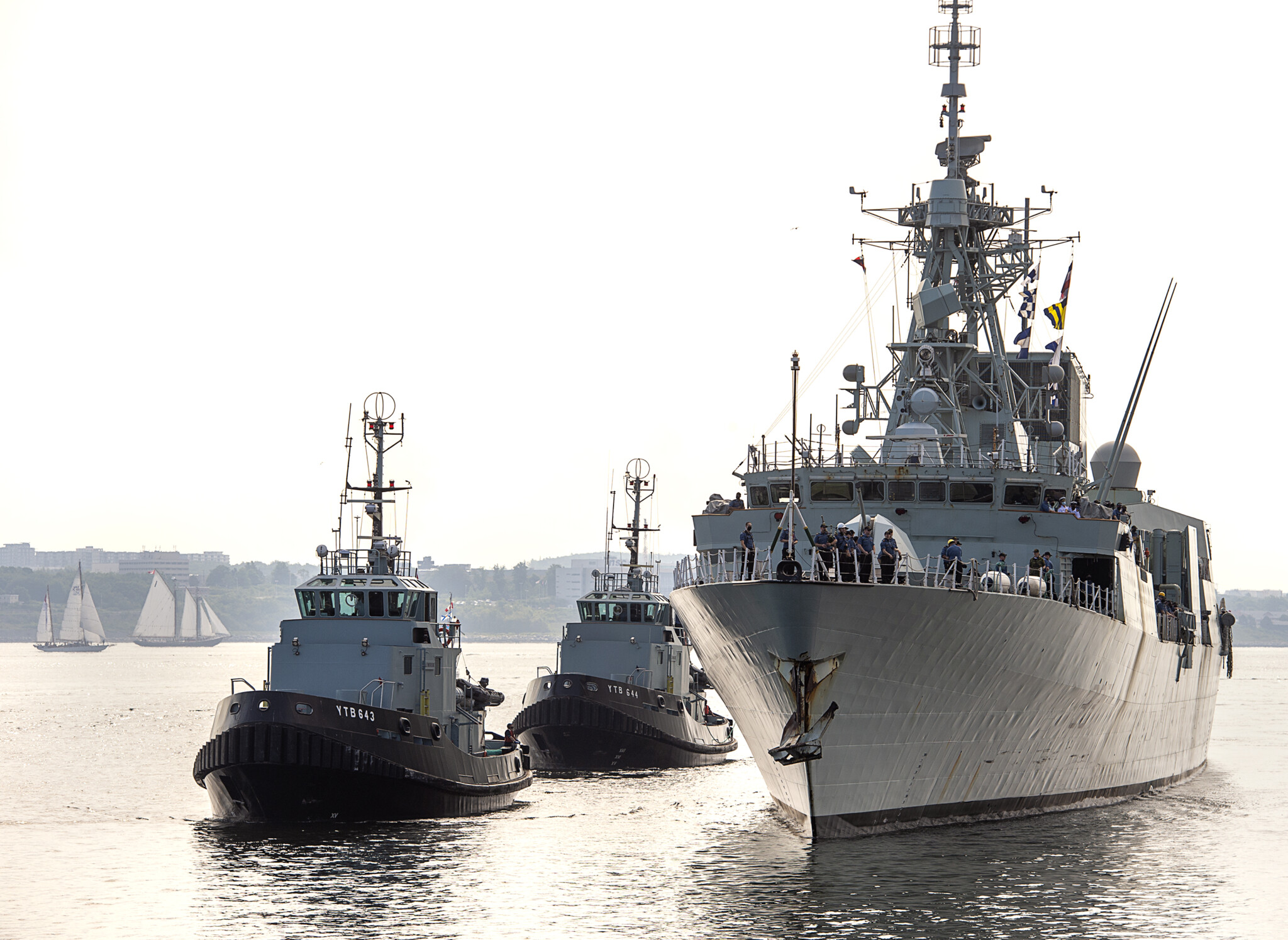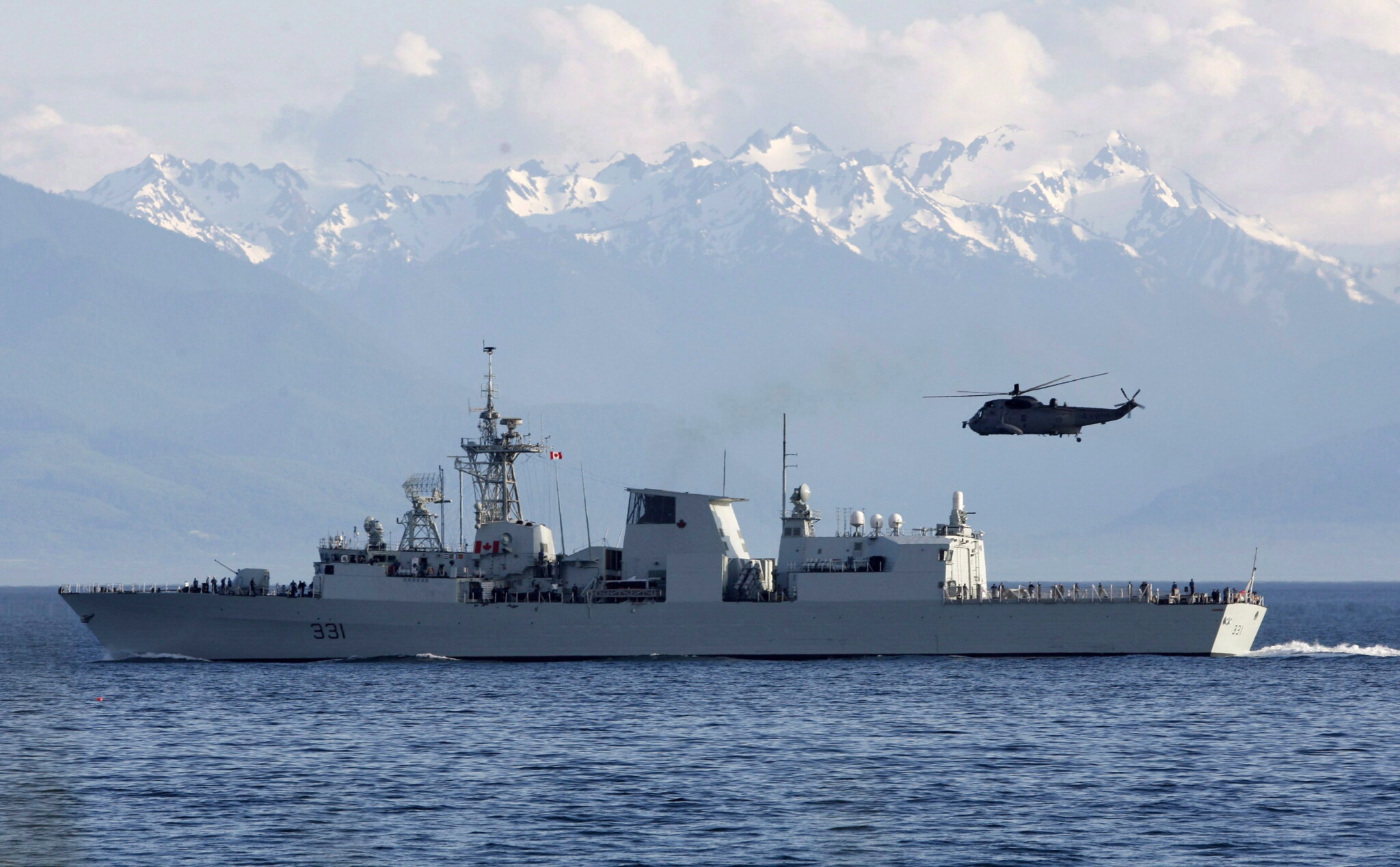Value for money is often upheld as a guiding principle for defence procurement. Government, the thinking goes, should get the best capability it can for the best price. This logic may have made sense in a world of open markets, stable supply chains, and reliable allies. Unfortunately, that world is slipping away. In the new geopolitical environment, value for sovereignty trumps value for money. Being able to develop and build capabilities at home, and to have a self-sufficient national defence, has a worth beyond dollars and cents.
Those who favour value for money in defence procurement have been particularly critical of the National Shipbuilding Strategy (NSS), Canada’s long-term project to renew several key combat and non-combat vessels. Why, they ask, should Canada pay more to build military and coast guard ships here, when there are cheaper designs that could be built faster in foreign countries? The upending of our alliances and global trade demonstrates that the NSS was ahead of its time. Fifteen years on from its commencement, it is possible to fully appreciate the NSS’s significance for Canadian sovereignty.
At its origin, the NSS was about building a national capacity to continuously produce large and small vessels and be able to repair, refit, and maintain them. The only way to do this was to lay out a steady stream of contracts. Rather than start with the most complex vessels, the NSS started with patrol vessels to protect our northern coastlines. In the coming years and decades, the NSS will produce destroyers, supply ships, icebreakers, and research vessels. This continuous build will result in up to 60 ships that will keep Canada’s shipyards working at capacity for the foreseeable future.
As planned, the NSS will therefore iron out the boom-and-bust shipbuilding cycles of the past and maintain a critical defence industrial base and skilled workforce. Indeed, according to the Conference Board of Canada, the NSS has contributed over $14 billion to the GDP since 2013, along with close to 10 thousand skilled jobs.
Skeptics will argue that the NSS has failed to deliver or point to problems with the new ships that have been built thus far. Yes, there were inevitable problems when the first Arctic Offshore Patrol Ship was sent out to sea. The fact is that every first-in-class ship has unforeseen faults and foibles. These problems have since been addressed, and the rate of production for the AOPS has been increased. What seemed like a troubled build has proven to be a success, both for the military and Canadian ingenuity.
We should expect the same pattern when the first River-class destroyer is delivered, and inevitable problems will arise when the initial vessel goes out to sea. Critics will declare the whole endeavour an expensive failure as a result. But we should be patient instead. After the issues and problems with the first ship are identified, they will be addressed, and the rest of the fleet will face far fewer issues and be built faster.
The biggest complaints about the NSS, however, are about time and money. According to critics, it has taken far too long to get Canada’s new ships built, which has added billions upon billions to the cost. Canada seems to be paying a lot more for its new military and coast guard ships than comparable allies, and the delays have been so long that we are pushing the existing Royal Canadian Navy and Canadian Coast Guard ships well beyond their limits. Critics will therefore insist that Canada would have been much better off buying far less expensive existing designs built in Europe or Asia.
This line of critique is beginning to fade as we start to collectively understand that value for money comes with other kinds of costs. Recently, for instance, a value-for-money approach led Canada to buy radios for the Royal Canadian Mounted Police from a company that is partially owned by the Chinese government. This happened because the lowest bidder inevitably wins in a pure value-for-money-based competition, regardless of whether it has links to a country that would have an espionage interest in listening in on the activities of Canada’s federal police service.

The HMCS Fredericton returns to Halifax, July 28, 2020. Andrew Vaughan/The Canadian Press.
A more recent fiasco is the B.C. Ferries’ decision to award contracts for four new vessels to a state-owned Chinese shipyard. This appears again to have been facilitated by a tender that emphasized lowest cost over other factors like domestic content requirements, and thus resulted in the bid not being viable for Canadian shipbuilders.
While not strictly a defence and security procurement, ferries in B.C. are a form of critical infrastructure; they link islanders to the mainland, and they arguably ought to have been built in Canada on that basis alone. It’s little wonder that the decision to obtain new ferries from China has come under critical fire from those who point up the ongoing trade war and the adversarial nature of our relations with that country over the last decade as variables that should have interceded in BC Ferries’ decision.
Turning back to military shipbuilding, Canadians should be relieved that we are constructing our own vessels. We cannot build everything we need in Canada, but we are slowly recognizing that we need to be far more self-sufficient than we have been in the past. Canada, for example, doesn’t have the infrastructure or expertise to build its own submarines, and the need to replace our current fleet is so urgent that it would be foolish to try to build a domestic capacity to build submarines now. What we can and have been able to do is build a capacity to construct and maintain our own surface ships. That gives us more control and autonomy than if our entire future naval and coast guard fleets were being built abroad.
The point is that there is a political economy to national defence and security procurement that doesn’t march in steady unison with the free market’s drumbeat. A different logic applies to investing in defence and security materiel, and the sovereign capability to build it, than buying office supplies. In procurement-speak, there are non-financial and non-technical considerations that need apply. In pure economic terms, the externalities are sometimes the point.
This should go without saying, yet it often hasn’t—at least until recently. Prime Minister Carney’s government has promised to advance projects of national interest. With our principal ally, the United States, questioning the worth of free trade, and our principal adversary, China, conducting what amounts to economic guerrilla warfare, Canada can’t afford procurement with only value for money in mind. As we find ourselves increasingly isolated and alone, value for sovereignty becomes far more vital.
Stressing value for sovereignty doesn’t mean that we shouldn’t factor price, fairness, openness and transparency in procurement practices. We should weigh these factors while also considering how we reward security and self-sufficiency. It’s true that doing things ourselves, big things like building ships, which ultimately could be called into service in defence of the nation, costs the taxpayers more. But as our many vulnerabilities on the trade front show, an inability to do things on our own can come at far greater costs in terms of national survival.
This is a different form of economic valuation, not easily captured by the traditional value for money calculus. It is rooted in a different logic, one that values self-reliance and indigenous capability, domestic economic growth and innovation, long-term jobs, skills development, stability, and the national pride that comes from being able to domestically produce and employ critical defence capabilities. This is an approach that some of our allies, notably France, have followed for decades, leaving them far better placed than other allies to defend themselves as the United States rethinks its role in Europe.
In sum, the NSS was a prescient move by the Harper government. Over the last 15 years, the international order has changed significantly, and Canada’s place within it has become far more precarious. Canadians are lucky that their government made the decision to invest in building our national shipbuilding capacity, rather than being utterly dependent on others, as we recognize that we are in so many other aspects of our national security and economic prosperity.
There is value for sovereignty, not just money.
This article was made possible by Irving Shipbuilding and the generosity of readers like you. Donate today.









